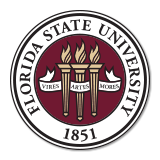
Professor Subramanian Ramakrishnan, Ph.D.researches complex fluids and nanomaterials in chemical and biomedical engineering at the FAMU-FSU College of Engineering in Tallahassee, Florida.
Subramanian Ramakrishnan leads a group of engineering professors at the FAMU-FSU College of Engineering that recently received a $435,000 grant from the U.S. Army to purchase a custom-designed 3D printer from nScrypt. The equipment will allow them to develop microscopic electronic sensors and other devices. With this technology, the group of six researchers aim to develop new forms of flexible polymer electrolyte batteries (such as lithium batteries) and thin-film transistors. They will also design direct-print electrodes for wearable devices and other applications, and ceramics and polymers for toughened composites that will enable better ballistic protection materials for the military.
“This acquisition of a unique printing/vision system coupled with laser annealing facility is expected to enhance the capabilities of FAMU-FSU Engineering researchers to work in areas that are of great interest to DOD, such as flexible electronics and sensors,” said Pani (Chakrapani) Varanasi, Ph.D., chief of the Materials Science Division of the Army Research Office. “At the same time, we expect they will play a critical role in the education and training of minority undergraduate and graduate students in emerging technologies.”
The grant will not only enable new research at the college, but it dovetails with other federally-funded grant work currently underway at the college. For instance, the Centers of Research Excellence in Science and Technology (CREST) Complex Materials Design for Multidimensional Additive Processing (CoManD) center is funded by the National Science Foundation to further research in advanced additive manufacturing by underrepresented minority graduate students. This equipment will open new lines of innovation for the CREST participants and their engineering colleagues at both Florida State and Florida A&M universities.




